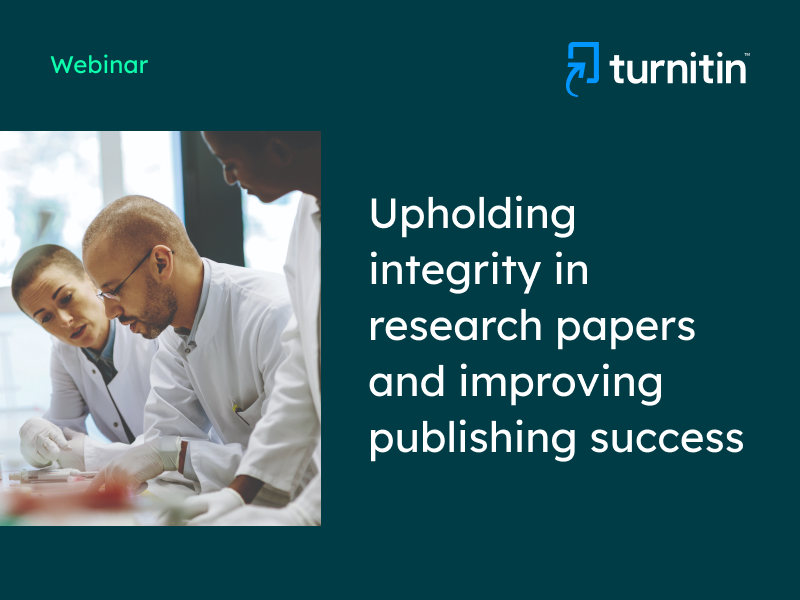The stakes are high for researchers looking to submit their papers for publication, with the quality and integrity of the submission affecting their reputation and the health of the scientific record. The publication of your research is the culmination of your efforts, and you do not want to see your research, your career, or your institution’s credibility tainted by negligence or misconduct; whether it’s plagiarising the work of others, inaccurate citations, self-plagiarism or image manipulation.
Researchers need a comprehensive understanding of research attribution in the development of their papers and how publisher expectations feed into broader research integrity guidelines. In this webinar, Dr Matthew Salter, Founder and CEO of Akabana Consulting, will draw from his own experience as a publisher and editor to highlight the challenges and opportunities facing researchers. He’ll discuss what’s needed to produce research papers that meet integrity benchmarks and share insights to inform your own approach to publication.
What we’ll cover:- Strategies for strengthening a culture of research integrity at universities
- Embedding research integrity guidelines meaningfully in supervision and instruction
- Common researcher pitfalls and how to address them early on
- Opportunities for research integrity training and mentorship
- Research integrity software to facilitate researcher due diligence and detect integrity breaches
- Publisher expectations and how to avoid desk rejects related to integrity issues
- How publishers use similarity-checking tools - namely iThenticate - to detect publishing integrity issues
Education leaders, academics and researchers who are actively involved in research at their institution and want to reduce the risk of research misconduct while boosting their publication rate.



